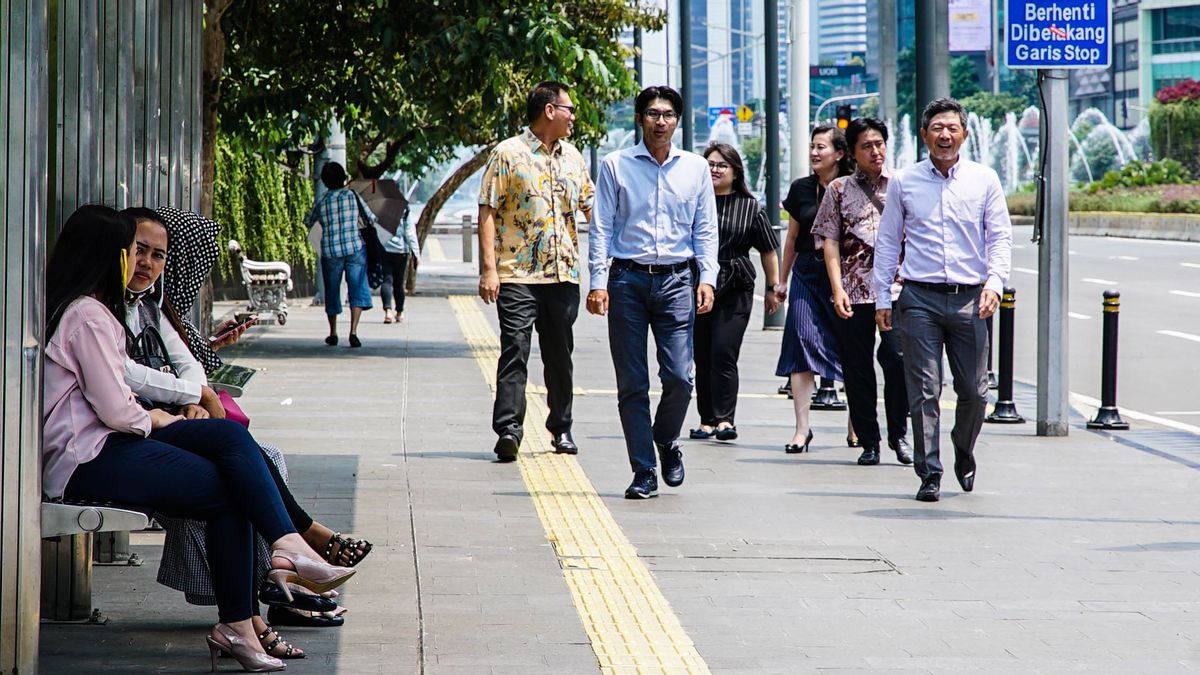JAKARTA - The Task Force for the Acceleration of Handling COVID-19 has issued Circular Letter Number 8 of 2020 concerning the regulation of working hours for people in the Jabodetabek area.
Spokesperson for COVID-19 Handling Achmad Yurianto said, this circular contains rules for all institutions that employ state civil servants (ASN), BUMN employees, and private employees to share working hours.
"The first phase or the first wave, will start work at 07.00 WIB until 07.30 WIB. It is hoped that, with eight hours of work, workers will end their work at 15.00 WIB-15.30 WIB," said Yurianto in a press conference broadcast on the BNPB YouTube account, Sunday, June 14th.
Furthermore, workers who enter stage two will start working between 10.00 WIB and 10.30 WIB and will finish working at around 18.00 WIB to 18.30 WIB.
According to Yurianto, this was done in order to maintain the implementation of health protocols in public transportation. Moreover, workers who live in the Jabodetabek area use a lot of public transportation, especially the commuter line.
He said, as many as 75 percent of commuter line passengers were workers such as ASN, BUMN employees, and private employees. These workers, continued Yuri, mostly moved simultaneously in the morning at around 05.30 WIB every day.
"If we pay attention, the movement is almost 45 percent of them moving together around 05.30 WIB to 06.30 WIB. This is what will then be difficult for us to be able to maintain physical distancing. Because the capacity possessed by this mode of transportation, for example, the commuter line has been maximally prepared. "said Yurianto.
If it is not anticipated, the congestion in this public transportation mode will have an impact on health, including being able to transmit the virus.
He emphasized that the regulation of dividing office hours into two aspects does not necessarily eliminate the policy of working from home, especially for those who are vulnerable groups.
"For example, workers or employees who have comorbid diseases. Employees with hypertension, diabetes, and chronic obstructive pulmonary disease, are expected to still be given the policy of working at home. This is important, because this group is vulnerable," said Yurianto.
"Likewise with elderly workers. It is hoped that they are still working at home," he concluded.
The English, Chinese, Japanese, Arabic, and French versions are automatically generated by the AI. So there may still be inaccuracies in translating, please always see Indonesian as our main language. (system supported by DigitalSiber.id)








